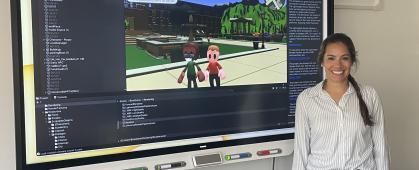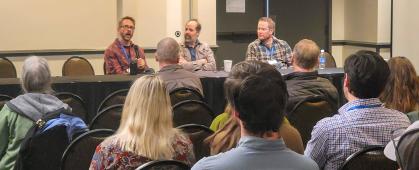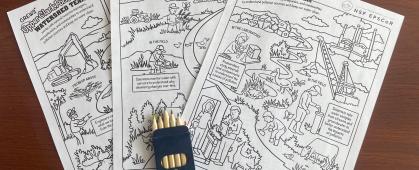This blog contains information about the CREWS project and team, including news, updates, highlights, outcomes and products, or any other useful content about the CREWS project.
Montana STEM Summit 2023 findings and next steps will be presented online Dec. 12
Key findings from the 2023 Montana STEM Summit will be shared in an online presentation on Tuesday, Dec.
Project Highlight: "The Future Isn't Written"
Dr. Arica Crootof of UM Western assists in a project surrounding effective communication about contamination and remediation efforts of the Warm Springs Ponds at the headwaters of the Clark Fork River.
New article from CREWS JRW Natural Resource Social Science team focuses on challenges rural communities face with public water systems
A recent publication from the Natural Resource Social Science team highlights the challenges facing rural communities in the arena of public water systems—namely, the locally-managed infrastructure that delivers domestic water to homes in settled areas like small towns and cities.

Online college simulation game introduces players to STEM concepts and pathways
The online learning game, Crash Course, is a virtual college simulation that introduces players to various STEM concepts and pathways.

Montana NSF EPSCoR supports first Clark Fork Science Forum
On April 20 and 21st of 2023, the first Clark Fork Science Forum was held at the Holiday Inn Downtown Missoula.
Women in STEM: Caitlin Mayernik
Meet Caitlin Mayernik, a PhD student at Montana State University and a member of the EPSCoR Track 1 CREWS research team. In this interview, Caitlin shared information about her work, studies and career pathway with the Montana Girls STEM Collaborative, an outreach program of Montana NSF EPSCoR. Her interview is reprinted here in order to share career pathways with young people in Montana.
Anaconda Art+Science Project
Three students from MSU created pieces of art based on CREWS graduate student Megan Moore's research on Anaconda and community resilience
Sensing for Science Program teaches educators how to code and collect data on water quality
The Sensing for Science Professional Development Program is a free online course that teaches educators how to use an Arduino microcontroller to create an electrical device that collects data on water quality.

CREWS coloring sheets now available for download
Coloring sheets for each of the three CREWS research sites - Judith River Watershed, Upper Clark Fork River, and Powder River Basin - are now available to download.